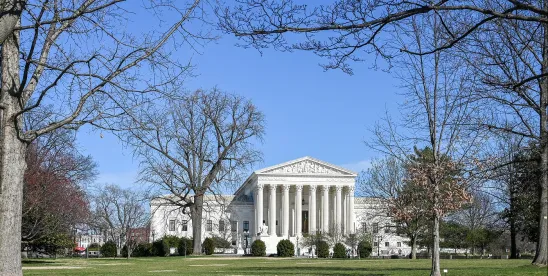On June 26, 2024, the Supreme Court of the United States released its opinion in Snyder v. United States, holding that 18 U.S.C. §666, relating to theft or bribery concerning programs receiving federal funds, forbids bribes to state and local officials but does not criminalize an official’s acceptance of gratuities for past acts. This decision follows a pattern in recent years of the Supreme Court weakening the government’s ability to use broad federal laws to prosecute public corruption cases.
The case came to the Supreme Court after James Snyder, the former mayor of Portage, Indiana, was convicted and sentenced to 21 months in prison for violating §666, which bars state and local officials from “corruptly” accepting “anything of value of any person, intending to be influenced or rewarded” for an official act. In 2014, Snyder received $13,000 from a truck company that had received government contracts totaling over $1 million for new trash trucks for the city. Snyder maintained that the payment was for consulting services, but the federal prosecutors argued the payment constituted an illegal gratuity. Snyder appealed the conviction, arguing the statute only applies to bribes before an act, not gratuities paid after the fact. The Seventh Circuit Court of Appeals affirmed the conviction, but the Supreme Court’s majority sided with Snyder.
In a 6-3 opinion authored by Justice Brett Kavanaugh, the Supreme Court found that while federal law punishes state and local officials who accept bribes promised or provided before an official act takes place, it does not make it illegal for those same officials to accept gratuities and “tokens of appreciation” after the official acts occur. Justice Kavanaugh reasoned that to read §666 to include gratuities would “turn §666 into a vague and unfair trap for 19 million state and local officials.” There must be evidence of an agreement before the act for an official to have exposure under the statute. While a gratuity or reward could be unethical or illegal under other laws and in fact “state and local governments may and often do regulate gratuities to state and local officials”, it is not violative of §666. Justice Kavanaugh ends the opinion by stating “Congress can always change the law if it wishes to do so” but has not done so since 1986.
Justice Ketanji Jackson, joined by Justices Sonia Sotomayor and Elena Kagan, dissented, stating that the majority’s opinion is an “absurd and atextual reading” of the law. The term “rewarded,” she contends, “easily covers the concept of gratuities paid to corrupt officials after the fact — no upfront agreement necessary.” Justice Jackson further argues the statute limits the scenarios in which it applies and “poses no genuine threat to common gift giving.” Her argument, though, did not win the day.
Snyder is the latest in decisions that continue to dismantle corruption laws, making it increasingly difficult for federal prosecutors to prosecute officials for alleged corruption.




 />i
/>i

